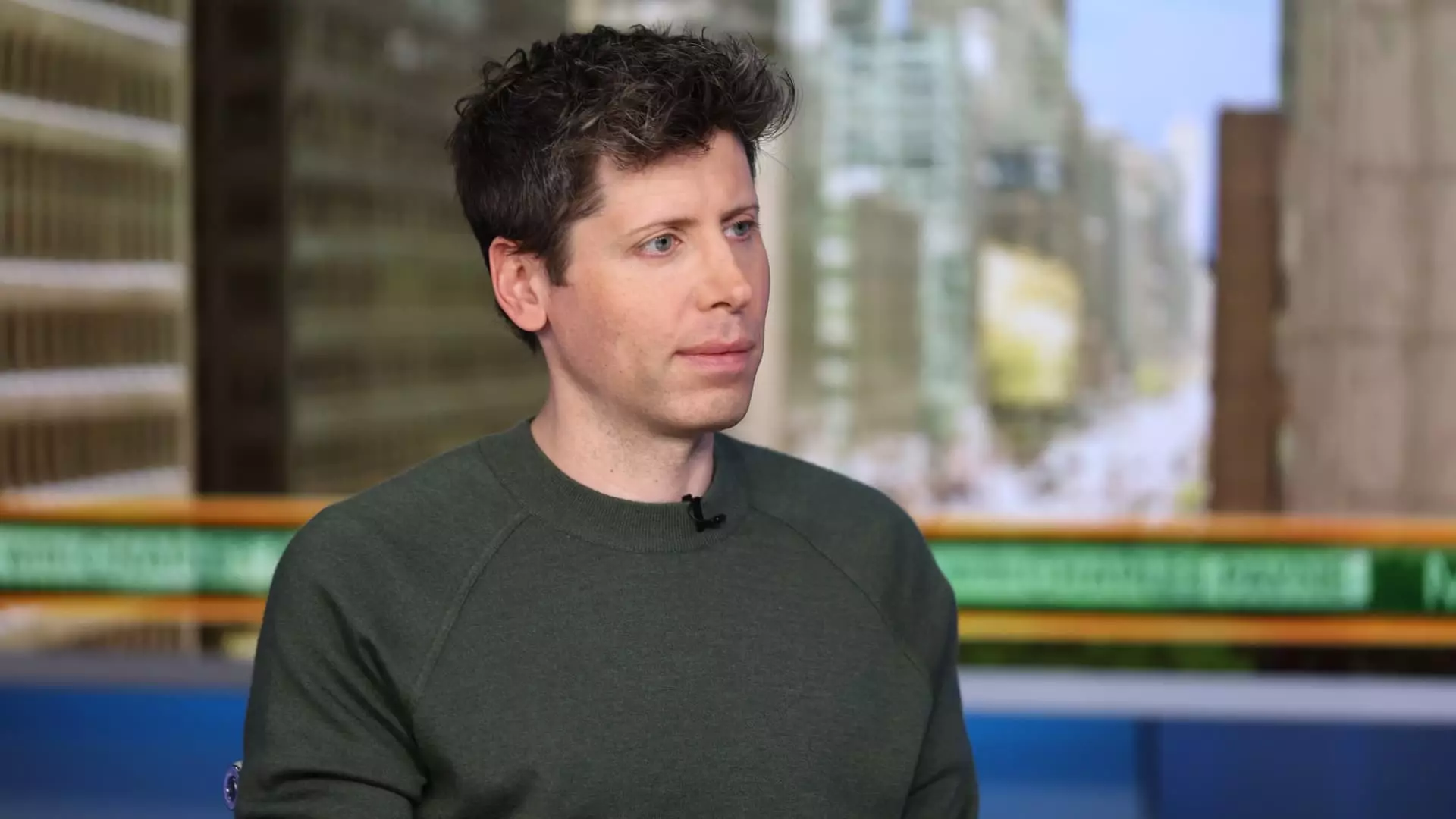The tech industry often thrives in a tumultuous environment, yet the allegations surrounding Sam Altman, the CEO of OpenAI, introduce a sobering reality that extends beyond corporate struggles. This past Monday, Ann Altman, Sam’s sister, made serious allegations of sexual abuse against him, claiming in a lawsuit that the abuse occurred repeatedly over nearly a decade, from 1997 to 2006. According to the lawsuit filed in the U.S. District Court for the Eastern District of Missouri, these alleged actions began when Ann was just three years old, and Sam was twelve, taking place in their family’s residence in Clayton, Missouri.
The nature of the allegations is grave and disturbing, detailing that the events transpired several times a week, escalating from oral sex to penetration. Such accusations not only portray a horrifying personal narrative but also spotlight the complexities surrounding familial relationships in light of trauma. The claim unfolds a chilling image not just of actions taken but of the profound psychological impact such experiences can have; Ann Altman has described enduring “severe emotional distress and mental anguish,” suggesting that the repercussions will likely linger far into the future.
While Ann has previously made statements on social media, including allegations against Sam on platforms such as X, the lawsuit marks a significant escalation in her assertions. She is represented by attorney Ryan Mahoney, whose focus is on cases of sexual assault and harassment. The legal request not only outlines a demand for damages exceeding $75,000 but also seeks a jury trial, seeking an arena that allows for both accountability and examination of the claims made.
The Altman family responded promptly and publicly, categorically denying the allegations. In a joint statement shared on X, Sam, along with his mother and brothers, labeled the claims as “deeply hurtful and entirely untrue.” They characterized the allegations as highly damaging, not only to the accused individual but also to the family unit as a whole, asserting that Ann faces significant mental health struggles which they claim affect her interactions with those attempting to support her.
Sam Altman is no stranger to the spotlight, particularly given his pivotal role in launching OpenAI and the rapid development of its flagship product, the artificial intelligence chatbot ChatGPT. The company’s valuation has skyrocketed to $157 billion, bolstered by significant investments from industry heavyweights such as Microsoft, Nvidia, and SoftBank. With this level of influence comes scrutiny, and the allegations against Altman arrive at a time when the public discourse about technological ethics and executive accountability is already heightened.
Additionally, the lawsuit is not the only challenge Altman faces. Elon Musk, a co-founder of OpenAI, has also initiated a lawsuit against the organization, disputing allegations of breach of contract and fiduciary duty amidst a backdrop of conflict stemming from Musk’s departure from the board in 2018. As he now leads a rival AI startup, xAI, Musk’s actions, coupled with the allegations against Altman, paint a complex picture of the layered dynamics in the tech world, where personal vendettas and corporate strategies often intermingle.
This entire situation compels us to confront the broader societal issues tied to allegations of sexual abuse, especially involving individuals of influence. The painful legacy of speaking out against powerful figures is complicated by fears of backlash, social stigma, and potential retaliation. Ann Altman’s decision to pursue legal action may signify newfound courage to address her trauma and bring these allegations to a forum equipped to provide justice.
Thus, the unfolding drama of the Altman family represents more than an isolated incident; it highlights the often tumultuous interplay of familial loyalty, mental health struggles, and the pursuit of truth. As this situation develops, the tech industry—and indeed society at large—will be observing closely, as the outcome could have far-reaching implications for how such allegations are treated, especially in an age increasingly characterized by activism and a demand for accountability.

